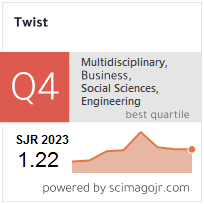Exploring the Influence of Distributed Leadership to Teachers Autonomy and Empowerment
A Mediation Model
Keywords:
Distributed Leadership, Teacher Empowerment, Educational Reforms, Teacher Autonomy, Professional Development, School ImprovementAbstract
In light of ongoing educational reforms and the evolving needs of schools, this study examined the impact of distributed leadership on teacher empowerment and how the autonomy of the teachers gives emphasis on it. As globalization and technological advancements shape educational environments, traditional hierarchical leadership models may fall short. This research highlights how distributed leadership, which decentralizes decision-making and fosters teacher autonomy, enhances teacher empowerment and overall school effectiveness. The findings suggest that educational leaders should prioritize the implementation of distributed leadership practices to create a supportive professional climate. Recommendations include policy makers prioritizing distributed leadership models, school leaders providing continuous professional development, and fostering collaborative systems. Teachers are encouraged to engage in leadership roles and decision-making processes to further enhance their autonomy and empowerment. This approach not only benefits teachers but also contributes to school improvement and student learning outcomes.
Downloads
Downloads
Published
Issue
Section
License
Copyright (c) 2024 TWIST

This work is licensed under a Creative Commons Attribution-NonCommercial-ShareAlike 4.0 International License.











